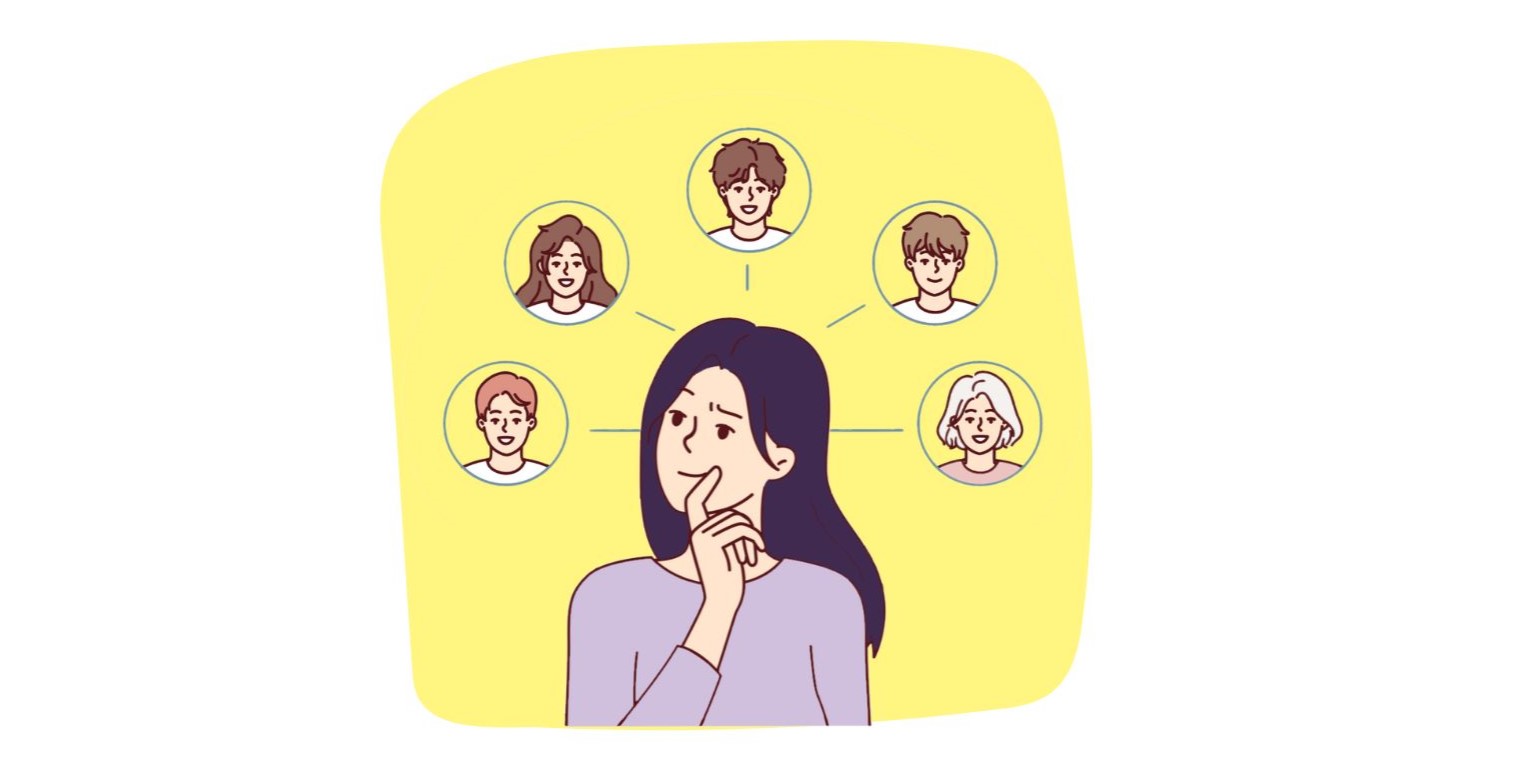Work in Progress! We are building a new website about supported decision-making. We haven't finished checking the content yet. We want to make sure everything is clear and correct before we share it. Please come back soon to see the finished website.
Choose the decision-supporter
Good support needs the right people to be involved. Who would the decision-maker like to support them in this decision?

Choosing a supporter
The decision-maker thinks about
- Who would like to support you for this decision?
- Who do you trust?
Decision-supporters might be
- Family members
- Whānau
- Friends
- Neighbours
- Co-workers
- Faith community members
- Support workers
- Health professionals
- Advocates
- Experts
Brad and Colin's stories
- Brad chooses people he can trust to support his decisions.
- Trust is important for Colin too. He chooses people who will listen. He prefers to choose people he has known for a long time.
You can listen to Brad and Colin in this video. This video is 2 minutes long. It is shared from Kansas University.
Video transcript
How do you choose your supporters?
First speaker: Brad
How I choose my supporters is um I just get I just get a feel for who they are and which ones might be compatible with me and as long as I feel comfortable with them
And one of the big issues with me is that I feel like I have to have somebody that I really trust to be able to get the things done that I need to do on a daily basis
Second speaker: Colin
Well I I like people that know me.
I don't go with random people you know, I go with people whom I trust and is going to listen to me and help me make my decisions and knows me and a bit of my history.
You know medically especially financially, many of the people I already know and know with a bit of help I can make sound decisions.
So I go with people whom I know have had a good long-term relationship with I don't just do it with random people I just met yesterday you know
Voice over.
Thank you for watching this video. To learn more information, please visit self-determination.ku.edu or email kucdd@ku.edu
A good decision-supporter
- Supports the person to speak up for themselves.
- Builds confidence. They encourage and believe in the person’s capability to make decisions.
- Pays attention to what the person wants and thinks.
- Explains things in a way the decision-maker understands.
- Stays patient. Making decisions can take time.
- Respects choices. They don't try to control or force their own view.
- Remembers that cultural differences might affect how they give advice. If they notice this happening, they talk about it with the person they're supporting and other supporters.
- Is open and honest.
- Shares information with other supporters that the decision maker has chosen to work with
Having a team
It is a good idea to have a team of people who can provide support in decision-making. This is sometimes called a Circle of Support.
Some helpful questions to find a team:
- Who does the decision-maker trust?
- Who knows them best?
- Who can support their cultural life?
- What type of decisions might they help with?
Different people can help with other types of decisions. A person can pick one supporter to help them make decisions in one part of their life. They can pick a different supporter to help them make decisions in a different part of their life.

Chris’s story
Chris has been dating Remi for several months. Chris is wondering about inviting Remi to stay the night. Chris would like some support to make his decision. He wonders about who to choose.
-
- Chris often asks his Mum to help him with health appointments and planning for the future.
- Chris knows that his Mum loves him and will look out for him. But Chris thinks he would be embarrassed to talk about this decision with Mum.
- Barry is Chris’s long-time friend. He knows Chris well. He wants Chris to be in control of his life as much as possible. Chris often asks Barry for support for lifestyle choices like clothes and holidays.
Chris thinks that he would feel more comfortable talking with Barry. Chris trusts Barry to have an open mind.
Find out more
"My Support Group external”: Videos and tips about how to build a support team